Duration of Probation Orders:
Probation, a potential outcome after a criminal conviction, is determined by the sentencing judge. The maximum probation period is three years, starting after any concurrent jail time.
Mandatory Probation Conditions:
All probation orders include fundamental conditions, maintaining peace, attending court as required, and updating personal details. Additional conditions are tailored to individual circumstances, aiming to reintegrate the person into society and ensure public safety.
Types of Additional Conditions:
Probation conditions can vary widely, addressing specific issues like substance abuse, anger management, or community service. Examples include reporting to a probation officer, avoiding specific individuals or places, attending counseling, abstaining from drugs/alcohol, and refraining from weapon possession.
Modifying Probation Orders:
When compliance becomes challenging, individuals can request changes through a “probation variation application.” This involves returning to the original judge to modify impractical conditions. Legal counsel, such as Smyllie Law, can assist in this process.
Consequences of Breaching Probation:
Violating probation conditions leads to legal consequences, including fines, extended probation, or imprisonment. In some cases, the original judge might reevaluate the sentence, especially if the initial ruling involved suspended sentences with probation.
The Importance of Legal Representation:
Facing criminal charges is life-altering, affecting one’s family, career, and future. A knowledgeable lawyer, like those at Smyllie Law, can guide individuals through the complexities of probation, providing expert advice and building strong defenses. If you’re in this situation, seek legal assistance promptly to safeguard your future. Contact Smyllie Law for a free consultation.
